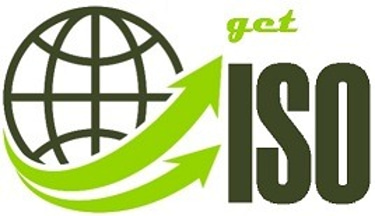Compliance Management System
ISO 37301
Enhance your Compliance Management System with ISO 37301 certification for effective governance and risk management solutions.
Compliance Excellence
ISO 37301 outlines the requirements for a robust compliance management system, covering various aspects such as the context of the organization, leadership, planning, support, operation, performance evaluation, and improvement. It emphasizes the importance of understanding compliance risks, embedding a culture of compliance, and ensuring that compliance objectives are met through structured processes and controls. The standard is designed to help organizations meet their legal, regulatory, and ethical obligations, thereby reducing compliance risks





ISO 37301 Compliance
Achieve effective compliance management with ISO 37301 for enhanced organizational integrity and risk management.
Compliance Benefits
Risk Reduction: By implementing ISO 37301, organizations can lower the risk of non-compliance with laws and regulations, which can prevent potential fines and legal issues.
Enhanced Trust and Reputation: Certification against ISO 37301 builds confidence and trust among stakeholders, demonstrating that the organization has a strong compliance system in place.
Improved Operational Efficiency: The standard helps streamline compliance processes, leading to better management practices and operational efficiency.
Competitive Advantage: Organizations with ISO 37301 certification may gain a competitive edge by showcasing their commitment to compliance and ethical standards, which can be a differentiator in the marketplace.
Support for Corporate Governance: ISO 37301 supports good governance practices by fostering a culture of integrity and accountability within the organization


Who It Helps
ISO 37301 is applicable to organizations of any size and industry that seek to establish a robust compliance management system. It is particularly beneficial for:
Organizations in Highly Regulated Industries: Such as finance, healthcare, and pharmaceuticals, where compliance with complex regulations is critical.
Multinational Corporations: That need to manage compliance across different jurisdictions and regulatory environments.
Organizations Seeking to Enhance Corporate Governance: By embedding compliance into their strategic and operational processes.
Businesses Looking to Improve Stakeholder Confidence: By demonstrating their commitment to ethical practices and compliance.
Leadership Commitment: A strong compliance culture starts with dedicated leadership that models ethical behavior and communicates the importance of compliance throughout the organization.
Shared Values and Ethics: It fosters an environment where integrity, transparency, and accountability are core values, encouraging employees to adhere to laws and internal policies as a matter of principle.
Training and Communication: Effective compliance culture includes comprehensive training programs and open communication channels, enabling employees to understand compliance requirements and report concerns without fear.
Continuous Improvement: Organizations should regularly assess and update their compliance practices, integrating compliance into all processes and monitoring effectiveness to ensure ongoing relevance and adherence.
Compliance Culture






